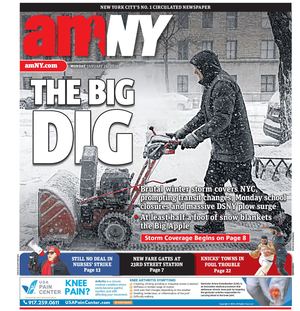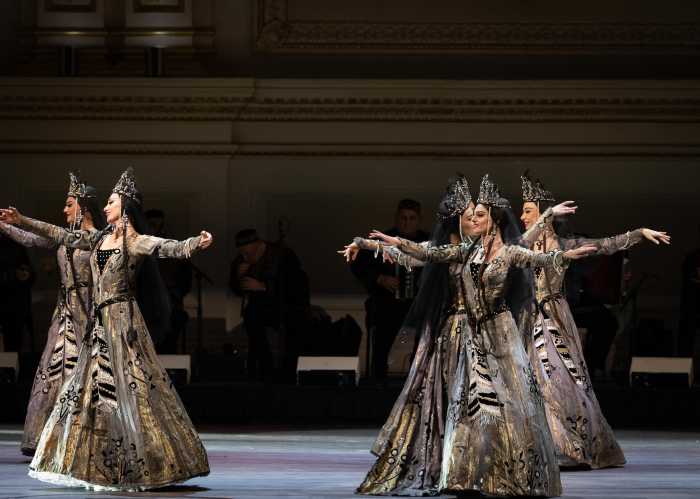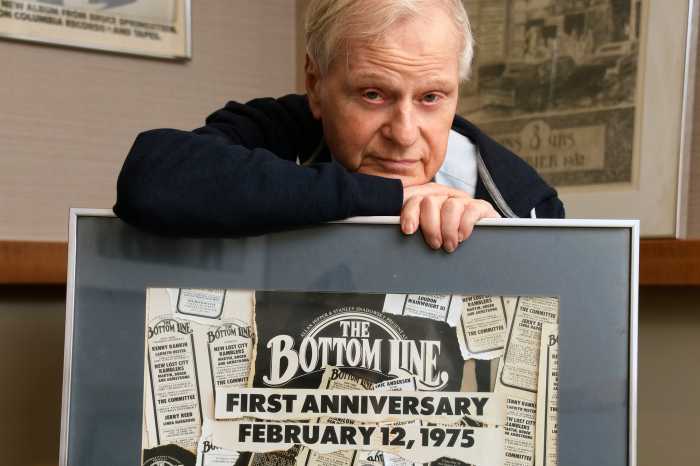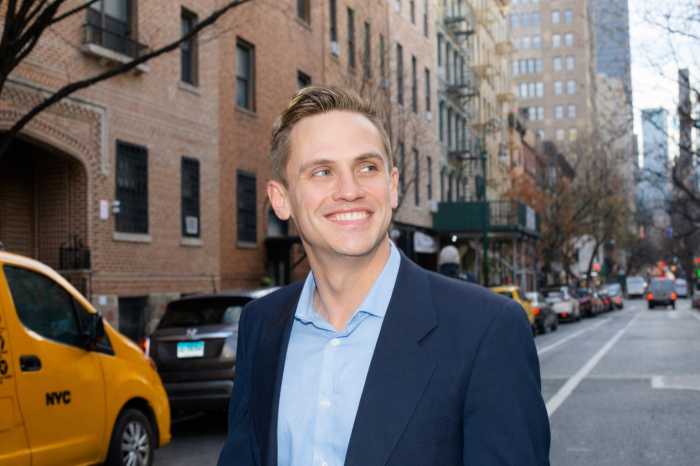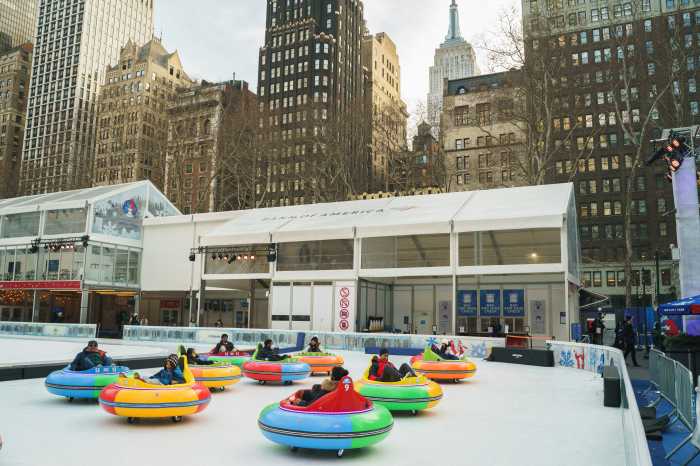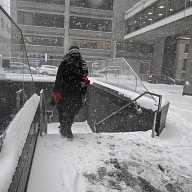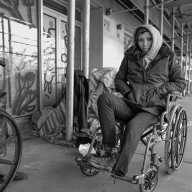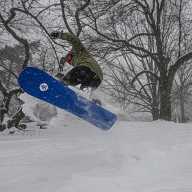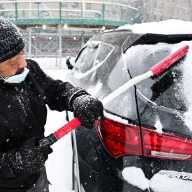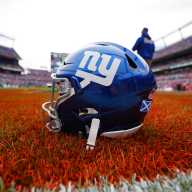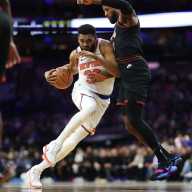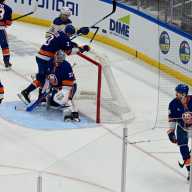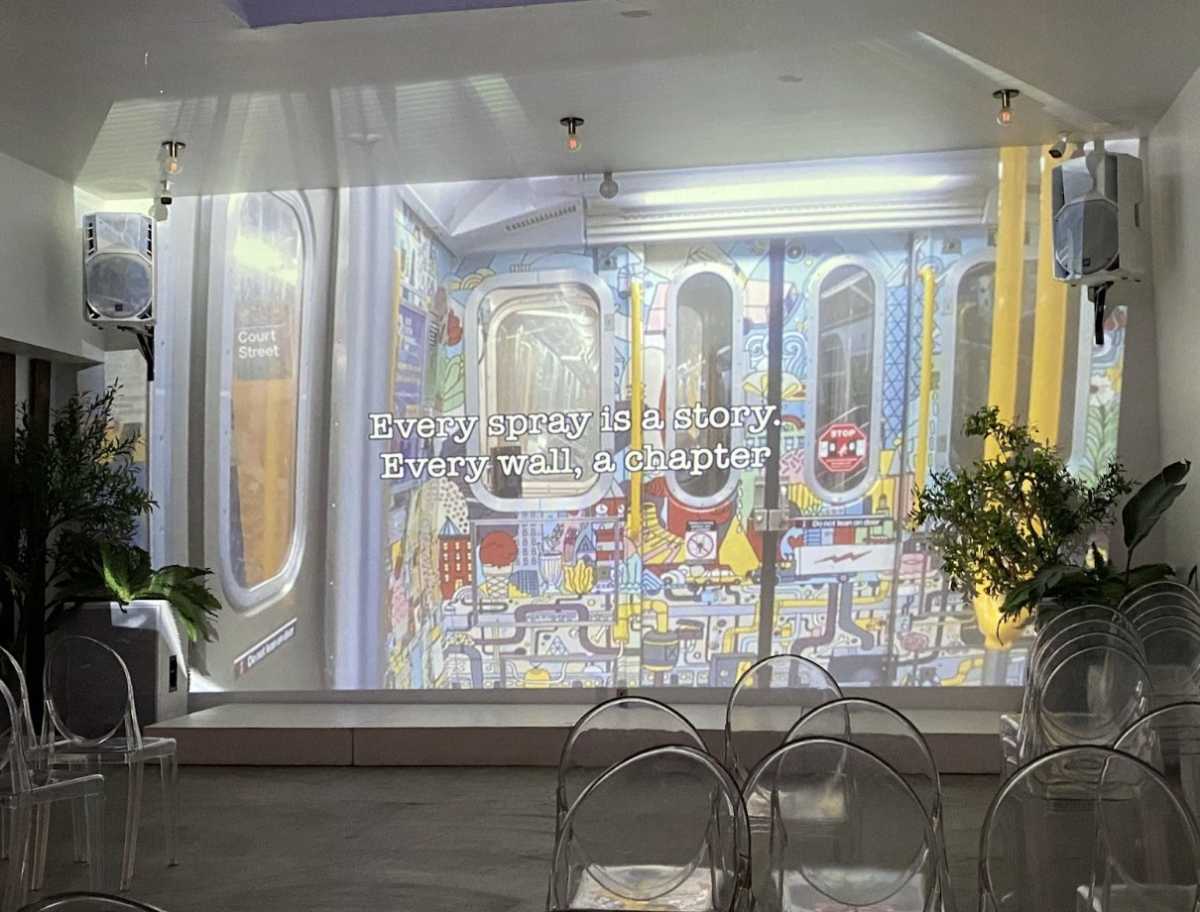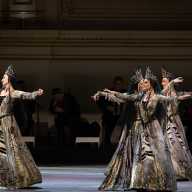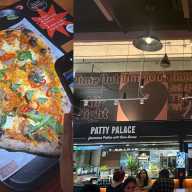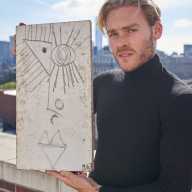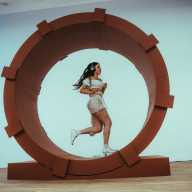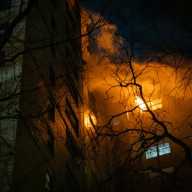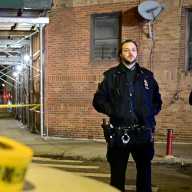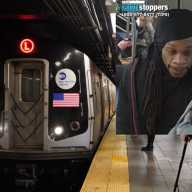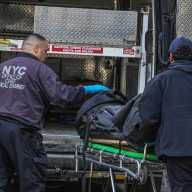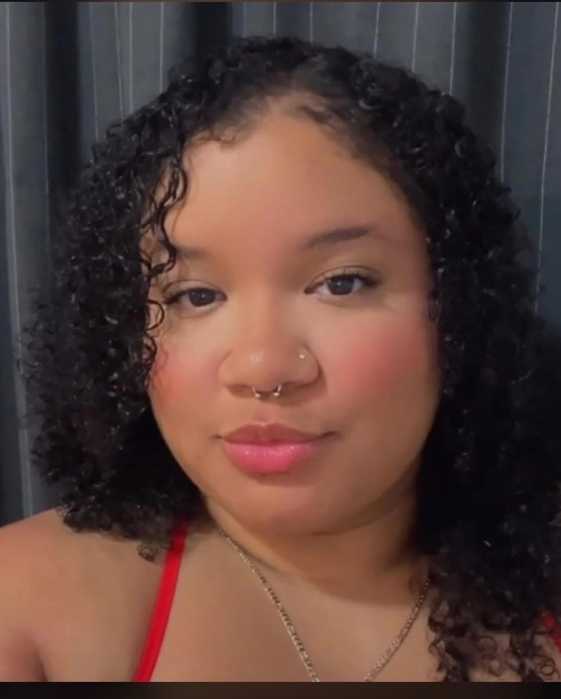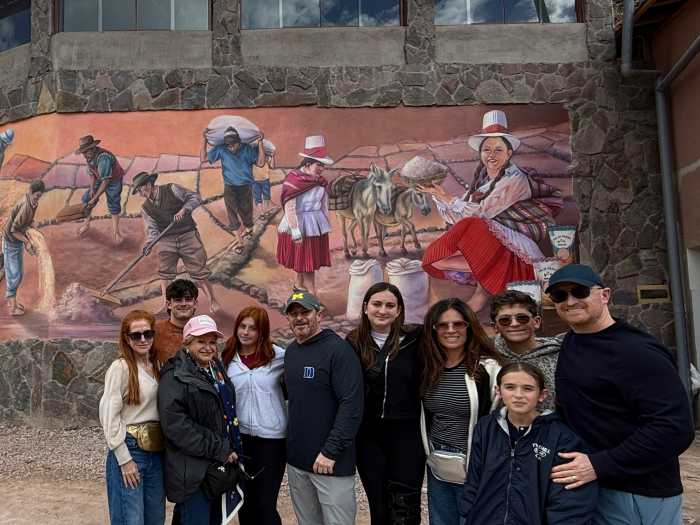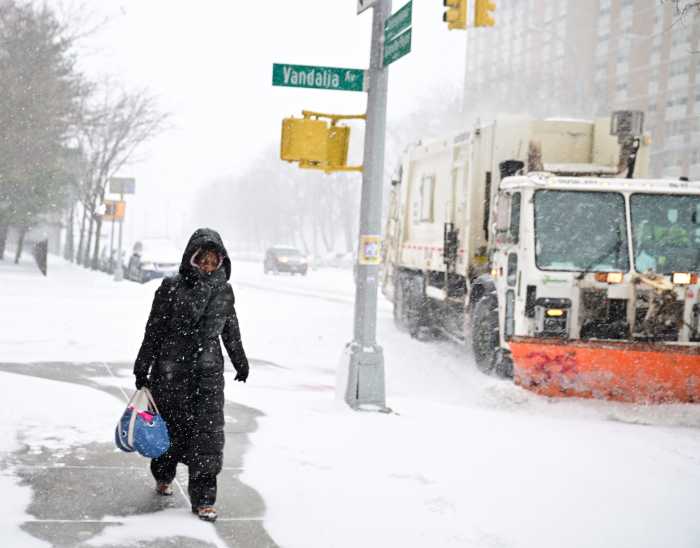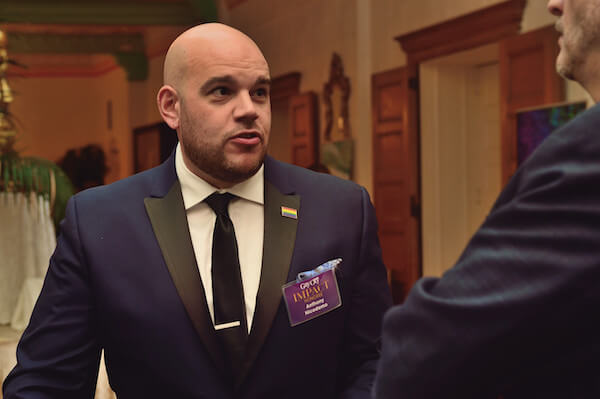By Jerry Tallmer
It is, at this writing, exactly seven days ago that a cataract was at long last removed from my left eye. Dr. K. did it, with kindness, firmness and finesse. The deterioration was too far gone to live with anymore. Time and human wear and tear had at long last proved Jimmy Chapin right after all. Or almost.
“You two jerks,” Chapin had said, not pleasantly, that day in the empty classroom back at Lincoln. “You two jerks don’t have to worry about the Army.”
As the crow flies, it is just three New York City blocks from Barney Josephson’s Café Society Downtown to Max Gordon’s Village Vanguard — that is, if Café Society Downtown were still in existence, and if the crow made a 45-degree right-hand turn when it hit Seventh Ave. South.
The Village Vanguard, of course, carried on by Lorraine (Mrs. Max) Gordon ever since her husband left us, is still right there, down a dozen stairs on Seventh Ave. South, just below Perry St., and probably will outlive all of us.
I used to cover those three blocks from Café Society to the Vanguard in something less than three minutes, in or out of uniform, i.e., before, after and during the war.
This one particular night at the Vanguard… .
That one even more particular morning, 11th grade, Lincoln School of Teachers College, 425 W. 123rd St., Willie Hochman and I, over by an open third-floor window looking out on Morningside Park, the two of us heatedly arguing war and peace, whether to go when called, or not.
Jimmy Chapin, the only other person in the room, brooding, silent, sullen, golden-haired, handsome Jimmy Chapin, bigger and two years older than either Willie or me because of having to repeat several semesters.
He suddenly speaks up:
“You two jerks don’t have to worry about the Army. You both wear glasses. They’ll never take either of you… .”
I have been standing on the ledge of the open window. I’m so startled by Chapin’s outburst that I almost fall out of the open window and smash on the sidewalk, in which case this story would be over before it begins.
Time for true confession:
The Marines and the Navy would have none of me, but the Army took me in, even though I tripped over a doorstop during the very first of four years of in-service eye exams.
In those four years I managed to maintain flight status through each and all eye exams by memorizing the wall charts as far down from “E” as I could in the instant I stepped into the examination room.
I wore eyeglasses surreptitiously — my own civilian eyeglasses, which I lost or broke with regularity on several continents. In which case my father would mail me a replacement pair, halfway around the world, as soon as possible. Must have gone through eight or ten pair that way.
I had discovered Café Society Downtown, in its cellar at 1 Sheridan Square, even before the war. There I learned to love — to worship — black artists like pianist Hazel Scott, jazzing Bach & Co. and beautiful, pure-voiced Helena (later Lena) Horne, white lunatic artists, like tiny Jimmy Savo climbing up a tower of chairs as he squeaks, “River, Stay Away From My Door,” and Zero Mostel doing anything.
Don’t remember just when I first went to the Vanguard — those were my drinking days — but I do vividly remember sitting in its pint-sized kitchen with gorgeous little honey-voiced Maxine Sullivan on my lap, myself still in uniform, and I also remember my first sight there of a zany little guy in six-foot-long coattails running around between the tables while uttering a stream of left-political gibberish that made perfect sense. His name was Professor Irwin Corey, and he’s still doing it to this day.
And then there was the band — a combo, rather. Four or five guys, blowing up a storm. But my eyes went to the drummer, who looked as beat, as bleary, as if he’d just stepped out of a train wreck.
Jimmy Chapin.
None other. I hadn’t seen or thought of him in eight years or so, and here I was, just out of the Air Corps but still in uniform, ribbons and all.
The ribbons weren’t much — an air medal, a campaign strip or two and a set of wings. Everybody had those, but still and all they were ribbons and they were mine. I couldn’t resist it. Walked over to the bandstand at the next break, stood there facing the drummer and said, as blandly as I could, “Hello, Jimmy.”
He greeted it with a glare, and silence. I walked away. That was that.
Years later, when I read that Harry Chapin, Jimmy’s son and a lovely songwriter, had been killed in a crash on Long Island, I felt sad for Jimmy and ashamed of myself, and said so, in print. Today I cannot even read newsprint, but with the help of good Dr. K., maybe there is light at the end of the tunnel.
